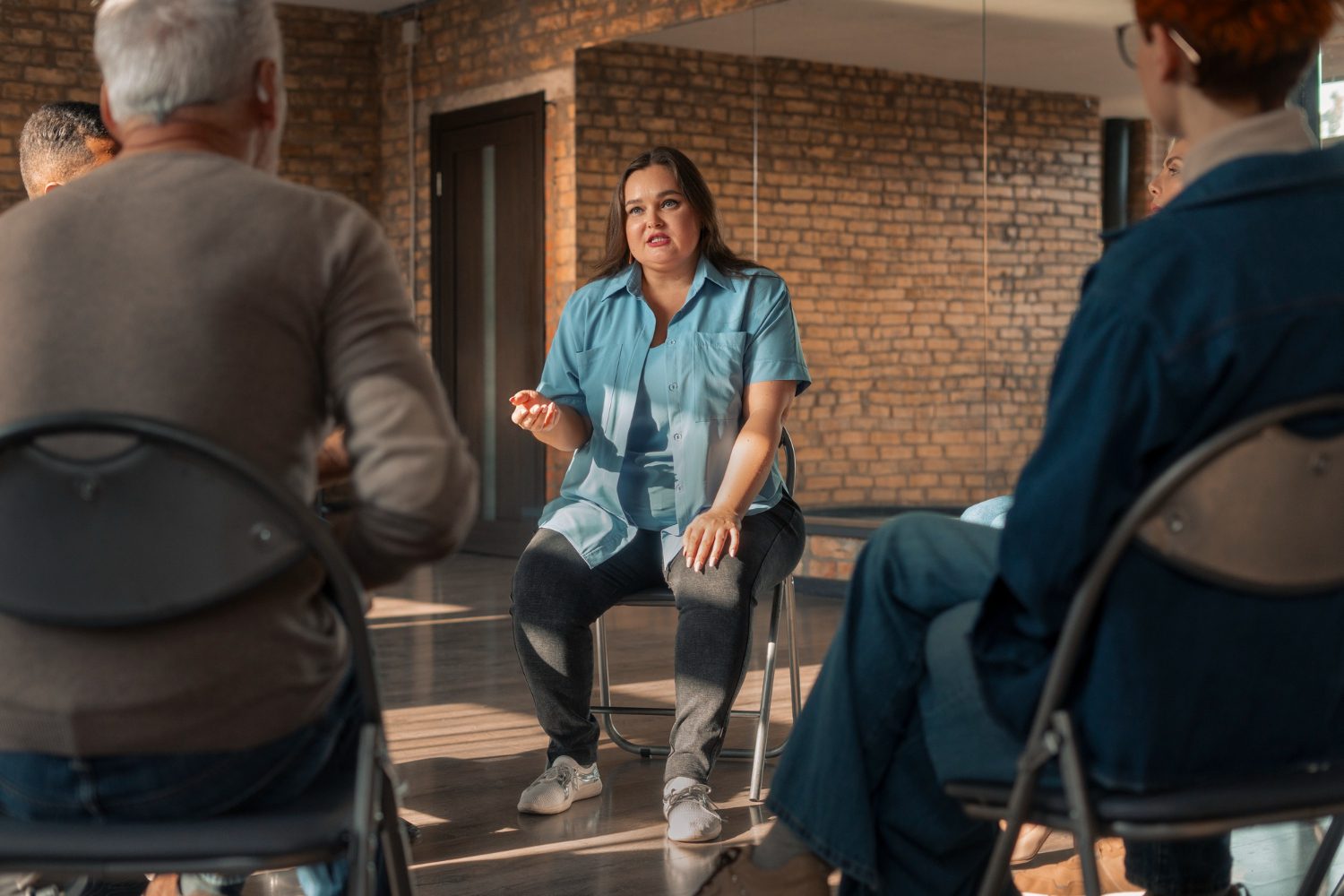Some people leave treatment because they want to. But most of us?
We just stopped going.
Maybe it started with one missed session. Maybe you got sick, or work ran long, or your kid needed something last minute. Maybe you felt overwhelmed by the emotions that treatment stirred up. Or maybe you just got tired—of explaining, of showing up, of trying so hard to keep it all together.
Whatever the reason, you ghosted. And now it feels like too much time has passed to come back.
But the truth is: You can come back. And outpatient addiction treatment can fit into your life—as it is now. You don’t need to blow everything up or start from scratch. You just need space, support, and a way to return without shame.
Let’s talk about how that works.
You’re Not the Only One Who Stepped Away
First, let’s clear this up: ghosting treatment isn’t rare. It’s one of the most common stories in recovery.
You didn’t fail. You didn’t ruin your chances. You just stopped. And you can start again.
At TruHealing Cincinnati, we work with people who are re-entering care all the time—many of whom thought they weren’t “allowed” back because of how they left.
There’s no punishment. No speech required. Just a chance to try again.
Why Outpatient Might Work Better This Time
If you dropped out of an IOP or missed too many sessions, you might feel like treatment “didn’t work.” But maybe it just didn’t work in that format, at that time.
Outpatient treatment comes in a range of structures and schedules. The goal is to offer clinical support without removing you from your life. That flexibility matters—especially when you’re juggling work, kids, relationships, or mental health challenges on top of it all.
When you return, you can talk through what didn’t work before and build a version of care that feels more sustainable this time.
You Don’t Need to Be “Ready” Forever—Just Willing Today
Recovery isn’t a contract. It’s not something you sign up for and then stick with perfectly. It’s more like learning to surf: sometimes you’re riding, sometimes you’re falling, sometimes you’re underwater and not even sure which way is up.
But eventually, if you want to, you can climb back on the board.
If that’s you right now—tired, unsure, but thinking about it again—that’s more than enough.
How to Fit Outpatient Treatment Into a Busy Life
You don’t need to wait until your schedule magically clears. Here’s how real people make it work:
1. Name the Guilt, Then Let It Go
It’s normal to feel a little embarrassed about leaving or ghosting a program. But guilt isn’t a good planner. It won’t help you build a better schedule—and it definitely won’t help you heal.
You don’t owe anyone a big explanation. The simple truth—“I got overwhelmed, and I want to come back”—is more than enough.
2. Re-Enter Without Apologizing
You don’t need to walk in with your head down. We’re not here to make you relive the past—we’re here to help you with the present.
Most providers (including ours) expect that some people will leave and come back. We build our programs with that reality in mind. So if you’re returning after time away, you won’t be starting over from zero. You’ll be starting from now—which is exactly where you need to be.

3. Start Small—Even Just One Session
You don’t need to commit to months of programming right away. Start with one conversation. One re-entry session. One honest check-in about what’s actually possible in your current routine.
Recovery doesn’t demand perfection. It asks for presence. And that can start with a single hour this week.
4. Pick a Format That Works for You
At TruHealing Cincinnati, outpatient treatment can include:
- Flexible IOP schedules (morning, afternoon, or evening options)
- Standard outpatient with fewer hours per week
- Telehealth options for certain appointments
- Case management to help with time, logistics, or access barriers
If you’re in Lexington, Kentucky or Indianapolis, Indiana, we can help you explore regional options that match your daily demands.
5. Build It Into What Already Exists
Try thinking of treatment like a recurring work meeting or doctor’s appointment—something that’s part of your week, not an interruption to it.
Block time on your calendar. Set reminders. Let one trusted person know what you’re doing (if it helps). You don’t have to move heaven and earth—you just have to protect the hour or two that’s meant to help you function better.
6. Ask for Help With the Barriers
Sometimes it’s not just time that’s the issue. It’s energy. It’s logistics. It’s anxiety about coming back.
Tell us what’s hard.
Can’t get childcare? Struggling with transportation? Feel like no one in your life supports this choice? We can’t fix everything—but we can work with you to lower the hurdles. And sometimes just talking about the block is what moves it.
7. Make Room for Setbacks (They’re Part of It)
Maybe you’ll miss a session again. Maybe you’ll take a week off and feel yourself slipping. That doesn’t mean you failed—it means you’re human.
What matters isn’t whether you fall out. What matters is how soon you let yourself return.
Real Talk: What People Say After They Return
“I thought they’d be mad. They weren’t. They were just glad I called.”
– Former IOP client, 2023
“I didn’t know you could restart. I thought once I left, I wasn’t allowed back.”
– Outpatient client, 2024
“This time, I chose a schedule that actually worked. And it made everything feel easier.”
– IOP re-engagement participant, 2023
Frequently Asked Questions
I ghosted after just a few sessions. Can I still come back?
Yes. Whether you were there for one day or three months, you can return. You won’t be judged for how long you’ve been gone.
Will I have to start over from the beginning?
Not necessarily. Your treatment team will meet with you to assess what’s still helpful, what’s changed, and where to pick up. The goal is continuity, not punishment.
What if my schedule changed since I last attended?
That’s okay. Outpatient programs are flexible for a reason. We’ll work with you to find a structure that fits now—not the one you had before.
Can I switch to a lighter schedule this time?
Yes. If IOP felt like too much before, standard outpatient might work better. You’ll still receive meaningful support, but with fewer weekly hours.
I live outside Cincinnati. Are there options near me?
Yes. We support clients across the region. If you’re looking for outpatient addiction treatment in Lawrenceburg or Springfield, Ohio we can help connect you with flexible options in your area.
No Shame. No Lecture. Just a Door That’s Still Open.
Whatever kept you from continuing treatment before—we get it.
And we’re not here to ask, “Why did you leave?”
We’re here to ask, “How can we help you return?”
Call (888) 643-9118 to explore outpatient addiction treatment options that actually work for your life now.
We’re still here. And your spot’s still open.


